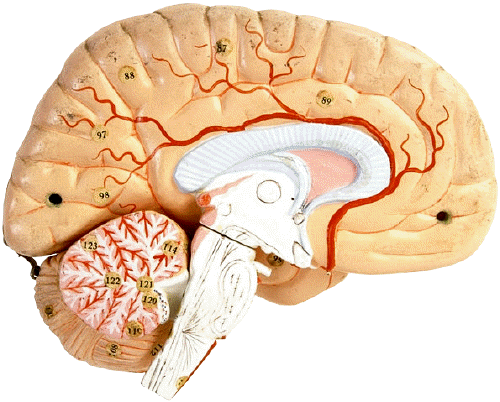
| Brain Nutrients |

| HealingWithNutrition.com 1-800-943-1123 | Home | SiteMap | Education | Products |
 |
|  |
|
Can brain nutrients really alter our brain chemistry, prevent memory loss and even make us smarter? Based on clinical scientific research, I believe they can. When Alan, 54, CEO of a rising computer firm, first came to me with diminished cognition, I immediately put him on a combined program of brain nutrients and a reduced-fat diet. In only a few weeks he saw dramatic results and felt restored to his previous vigor and mental acuity. At the core of this transformation were these five nutrients: Vitamin E, ginkgo biloba, co-enzyme Q-10, phophatidylserine and DHA. The first of these core nutrients is vitamin E, a prime antioxidant--or free radical scavenger--which protects nerve cells from damage. As we age it actually retards the progression of moderate Alzheimer's into a more advanced stage. In non-Alzheimer's individuals it may even delay onset. In a now-famous study, high doses of vitamin E slowed the progress of Alzheimer's for up to seven months. I prescribe a typical dosage of 800 IU daily although following the results of the above research studies, a dosage of 2000 IU daily is recommended for those already experiencing diminished capacity from early Alzheimer's disease.
In my own prescribed treatment, I recommend a ginkgo biloba dosage ranging from 90-240 mg daily. Those wishing to monitor themselves for improvement should begin to see results in 8-12 weeks although in some cases 24 weeks might be a more realistic time frame since areas of the brain long deprived of oxygen do take longer to rejuvenate. I firmly believe that ginkgo, plus other brain nutrients, will not only improve our minds, but also keep them from declining with age. The third nutrient is coenzyme Q-10, commonly used for improving heart health. Within my program its place is as a "neuroprotective agent" which protects nerve cells from damage by free radicals. CoQ10 is found naturally in mitochondria and is essential to energy production in all of our cells. I recommend dosages of approximately 100 mg daily.
The fifth core nutrient is DHA, an omega-3 fatty acid derived from both fish and algae. I have developed my own product, BRAIN CARE, which contains an algae-based DHA as well as other brain-specific nutrients. I recommend two to six pills per day, depending on need. Whether or not the issue is Alzheimer's, aging or stressful living, I believe that people can lead lives of increased mental power and sustainable memory. Long-term results like those of Alan, who after one year continues a profile of mental potency, dismiss any placebo effect and point to a bright future for all Americans. I also want to emphasis the synergistic quality of these nutrients which, when taken collectively, reduce the specific dosage for each separate nutrient. Taken in combination, these nutrients are protective, regenerative, therapeutic and clinically proven. I am convinced, and my work with patients conclusively shows, that our minds are not biologically doomed to decline and dementia. When viewed from all sides--medical, emotional and spiritual--it is clear that we are the capable guardians of our own brain longevity. [by: Dharma Singh Khalsa, M.D., Total Health for Longevity, Vol. 21, Number 5] |
|
Product Highlight: Ginkgold ($30), 100 Tablets contains the nutrients necessary to aid the body in supporting proper glucose metabolism. It has been extremely helpful for individuals with blood sugar challenges and contains aspartic acid, bilberry extract, chromium, vanadium plus additional nutrients important to the digestion of sugars. |
|
We welcome all Email!|
©Copyright 1999-2001 Personal Health Lifestyles, Inc. All rights reserved. |